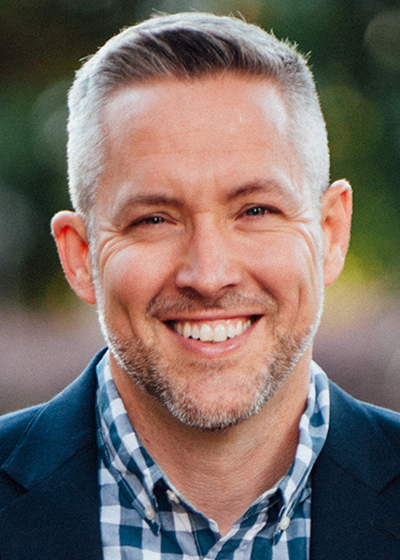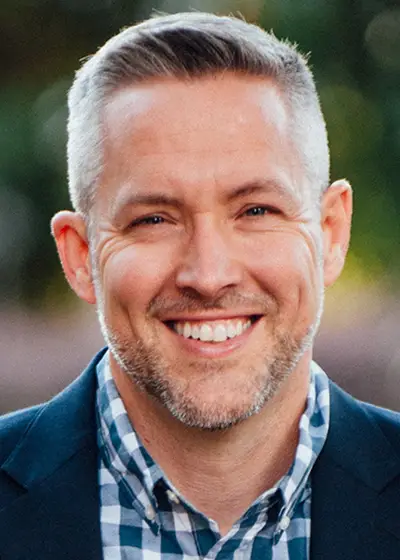
DURHAM, N.C. (BP) – I was warned that it would be tricky to lead the Southern Baptist Convention. But I don’t think any of us saw this coming.
Today, we are saddened to announce that for the first time in 75 years, the annual meeting of the Southern Baptist Convention has been canceled.
This decision was made unanimously by the SBC Executive Committee, me, every one of our SBC officers and our Great Commission Council, which consists of the presidents of all six of our seminaries, the International Mission Board, the North American Mission Board, Guidestone Financial Resources and Lifeway Christian Resources, and affirmed by both Sandy Wisdom-Martin from the Woman’s Missionary Union and Russell Moore of the Ethics & Religious Liberty Commission. I am grateful for the united leadership of these men and women in taking this proactive step. We believe, without reservation, that it is the right one.
In one sense, this was a difficult decision for us. Gathering regularly to hear about the great things God is doing in the present and to seek His face together for the future is an essential part of who we are as a Convention, and we will be saddened to forego this opportunity in June.
But in another sense, this decision was easy. Our purpose in coming together is to support one another in Gospel mission and to better catalyze our collective mission efforts. This year, the best way to accomplish that purpose is by NOT meeting together.
I don’t need to tell you how many of our churches are hurting right now. Or how most of our communities are experiencing unprecedented need. In this extraordinary hour, pastors need to be focused on their people, and churches need to be focused on their communities. Pausing from these efforts to make a costly trip to Orlando just doesn’t seem like the right thing to do. In this moment, keeping the Gospel above all means staying where we are to minister to those who need us.
Let me encourage you to consider reallocating resources that might normally have been spent on getting to the Convention to minister to people in crisis. At The Summit Church we have decided to take the money that we were going to spend on sending messengers to Orlando and use it to help bivocational pastors and church planters meet payroll over these next several weeks. I am calling on other churches to join us in this if they are able. The apostle Paul tells us in Galatians that fulfilling the law of Christ means bearing the burdens of our brothers and sisters, shouldering their loads alongside them.
Let me also encourage you to consider ways that your church might bless your community in this difficult season. You might consider making a donation to your local pregnancy resource center, for example, since they tell us that during times like these, abortion rates go up. You might donate to the many food banks helping feed children who are in need because of school closures. You might reach out to local organizations that focus on the marginalized and the vulnerable and simply ask, “What can we do to help?”
The church is God’s demonstration community, a body that visibly depicts the love of God for the world. As our community hurts, let’s bear their burdens with them.
The work of the SBC can go on without the meeting. Why? Because the headquarters of the SBC is not in Nashville or Orlando, nor is our primary impulse for ministry what happens on the Convention floor. The headquarters of the SBC is the local church. Our strength is in our pulpits and pews. Our ministries will still go on.
While we may be quarantined, the Great Commission is not. Our Gospel is more relevant and necessary than ever. The Gospel literally means “good news,” and good news is best when life is the darkest. As other idols of this world prove hopelessly insufficient, our Gospel offers a hope higher than the heavens, a hope deeper than any recession, a hope that outlasts death itself. That’s why it must remain above all.
What’s more, our Gospel teaches us exactly what to do in times like these. We serve a Savior who ran toward tragedy, not away from it. When we were dead in our sins, He left heaven to enter our suffering, take it upon Himself and deliver us from it. That means we who know Him and love Him will, in a moment like this one, move forward in faith, not backwards in fear, toward self-sacrifice, not self-preservation.
Historically, we know that the church is at its best in times like these. It’s when the power of the Gospel really begins to shine through. This is an extraordinary Gospel moment.
Historian Rodney Stark describes how God used a moment like this in the early days of the church to expand the Gospel in unprecedented ways.
In A.D. 250, an enormous plague struck the Roman Empire, killing an average of 5,000 people every day. At this time Christians were less than 2 percent of the entire population. Their numbers were growing, but statistically speaking, they were nearly insignificant.
Yet despite their numbers, their response to this pandemic won admiration and a greater following. Dionysius, bishop of Corinth, reported:
“Most of our brother Christians showed unbounded love and loyalty, never sparing themselves and thinking only of one another. Heedless of danger, they took charge of the sick, attending to their every need and ministering to them in Christ, and with them departed this life serenely happy. … Many, in nursing and curing others, transferred their death to themselves and died in their stead.”
Outside the church, the situation was much different. Dionysius continues:
“But with non-Christians everything was quite otherwise. They deserted those who began to be sick, and fled from their dearest friends. They shunned any participation or fellowship with death; which yet, with all their precautions, it was not easy for them to escape.”
Stark even points out, in evident irony, that the death rate for Christians in many of these plagues was actually lower than that of those who simply fled. In some cases, by as much as one-half!
Why? Some analysts say it was because of their strong sense of community, their refusal to submit to despair, their commitments to care for each other and their robust hope in the face of death. In other words, through their willingness to embrace death, they found life.
Andy Crouch explains why this led to an explosion in the church in the following years:
“[If you were a first-century Roman], after you had recovered from the plague, where would you want to worship? The pagan temple whose priests and elite benefactors had fled at the first sign of trouble? Or the household of the neighbor who had brought you food and water, care and concern, at great risk to themselves?
“When this plague has passed, what will our neighbors remember of us? Will they remember that the Christians took immediate, decisive action to protect the vulnerable, even at great personal and organizational cost? Will they remember that, being prepared and free from panic, the households of their Christian neighbors were able to visit the needy (while protecting them by keeping appropriate social distance!), provide for their needs and bring hope?”
How we conduct ourselves in this moment will demonstrate to the world what we actually believe about the Gospel. Our theology is about to be on display. So let’s make sure to be faithful witnesses.
We may be living through a very new day. But God promises that He gives new mercies for new challenges. He never runs short on supply; the shelves of His heavenly riches are never empty, and His angels never get sick. Let’s call on Him for grace to meet this challenge.
Our Convention offers multiple avenues for sending relief to others. For example:
– Visit SendRelief.org for ministry ideas for your church.
– Call your Associational Missional Strategist and find out which churches need your help and where needs are in your community. Our own AMS, Marty Childers, has given us specific ways that we can help serve other churches in our area.
– Make sure the elderly and the vulnerable in your own communities are taken care of. Many elderly in our communities are unable to get out to take care of basic needs. Many hourly workers have been laid off, with some unemployment projections reaching as high as 30 percent. Make sure the vulnerable and needy in your community are taken care of. And start in the church. It was said of the church in Acts that there were NO needy among them.
Let that be true of us as well. And let that love for the “widow and the orphan” then spill out into the larger community. As Roman Emperor Julian famously complained about the Christians of his day, let it be said of us, “They take care not only of their own poor but ours as well!”
– Keep giving to your local church. Generosity is often one of the first casualties of a scare like this one. Our God is a God of abundance, even in a time of scarcity. He is, even now, calling us to open our hands so that He might increase our seed for sowing.
– Tell someone about Jesus. Your neighbors are scared. Many feel hopeless. They are asking questions – about life and death and what happens after — that are usually hidden deep down. As believers, we have answers to those questions. God is up to something. We have to be faithful to be at our post, pointing the way.
It has been my privilege to strive along with you these last couple of years to keep the Gospel above all. This is how we believe we can accomplish that in the days to come. God has given us a new challenge, and as He promises, we are confident that He will give us grace sufficient for that challenge.
I am praying for you, and my prayer is that when we come together in Nashville in 2021, we will find ourselves stronger than ever and rejoicing that our God was with us. As William Carey famously said, the future is always as bright as the promises of God. That is bright indeed.
By J.D. Greear, president of the Southern Baptist Convention and pastor of The Summit Church in the Raleigh-Durham, N.C., area.

